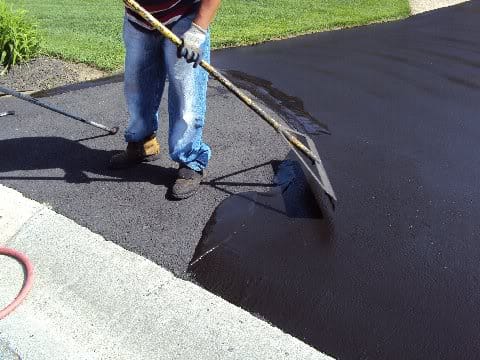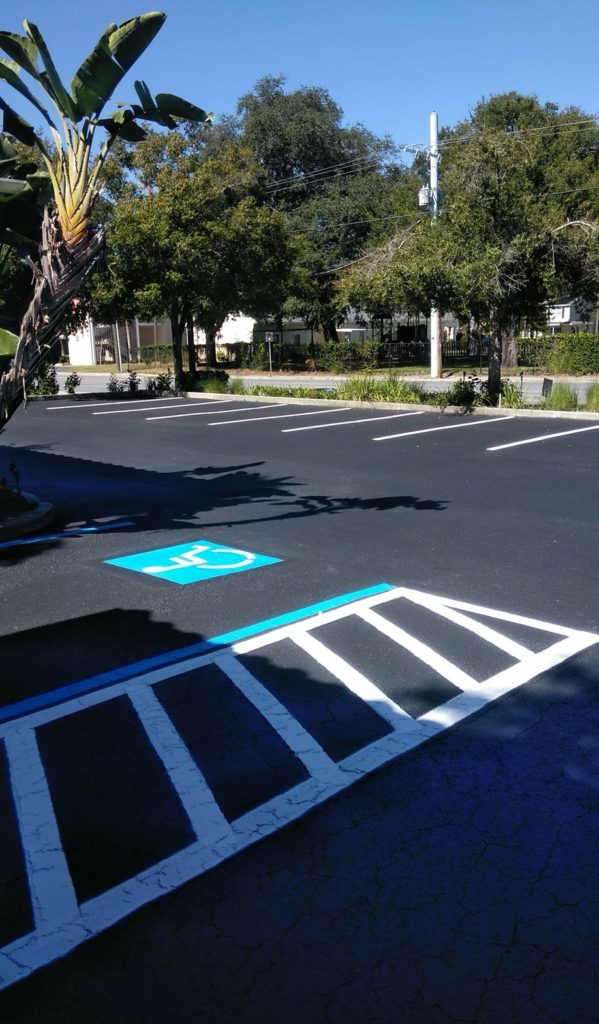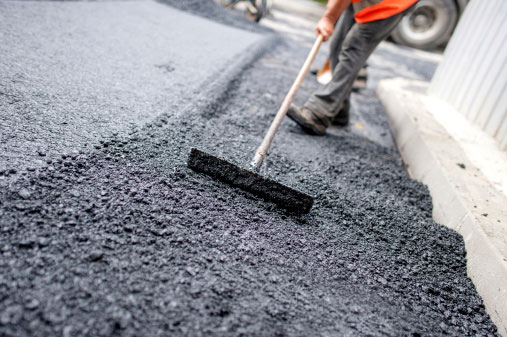Warm Mix Asphalt: A Sustainable Service for Sidewalk
Warm Mix Asphalt (HMA) has actually become a leading lasting choice for pavement solutions, offering a myriad of ecological advantages and cutting-edge technologies. Its ability to reuse products and minimize energy consumption provides a compelling case for its adoption in roadway building tasks. The long-term efficiency and toughness of HMA make it a favored alternative for facilities development. As the need for eco-friendly building methods expands, checking out the subtleties of HMA's sustainability can offer beneficial insights right into the future of sidewalk services.
Ecological Benefits of Hot Mix Asphalt

Additionally, Hot Mix Asphalt helps to reduce metropolitan warm island results. Its dark color absorbs sunlight, decreasing the quantity of warm reflected back right into the ambience compared to lighter-colored pavements. This can reduce ambient temperatures in urban locations, decreasing the need for air conditioning and eventually decreasing power intake.
Furthermore, Hot Mix Asphalt contributes to enhanced stormwater administration. Its porous nature allows water to recharge and infiltrate the pavement groundwater products, decreasing runoff and the threat of flooding. These environmental benefits make Warm Mix Asphalt a sustainable option for leading roadways and highways.
Power Performance in HMA Production
Is power performance an important aspect in the manufacturing of Warm Mix Asphalt (HMA)? Power plays a considerable function in the production of HMA, impacting both price and environmental sustainability. One crucial element of power efficiency in HMA production is the usage of warm mix asphalt (WMA) modern technologies.
In addition, innovations in plant modern technologies have actually led to more energy-efficient HMA manufacturing processes. Modern plants are developed with attributes like recycled asphalt pavement (RAP) processing capabilities, efficient burner systems, and enhanced insulation, all contributing to power cost savings. By maximizing energy use in HMA production, the market can reduce its carbon impact while maintaining top notch pavement materials. Power efficiency is, for that reason, an essential factor to consider in making certain the sustainability of Warm Mix Asphalt production.
Recyclability of Warm Mix Asphalt
The recyclability of Warm Mix Asphalt (HMA) is a pivotal facet of its sustainability and long-term environmental effect. HMA is one of the most recycled materials in the United States, with over 100 million lots of redeemed asphalt sidewalk (RAP) being reused each year in brand-new pavement construction. Recycling HMA supplies numerous ecological advantages, such as decreasing the requirement for virgin products, reducing power usage during manufacturing, and decreasing the quantity of waste sent out to garbage dumps.
The procedure right here of recycling HMA includes crushing the existing sidewalk, squashing it right into smaller items, and mixing it with new accumulation and asphalt binder to create a recycled mix. This recycled mix can typically perform along with or perhaps much better than traditional HMA, while needing less raw products and creating lower greenhouse gas emissions. By including RAP right into brand-new sidewalk jobs, road agencies can preserve all-natural sources, minimize prices, and minimize the environmental impact of road building and construction Click Here and maintenance tasks. Generally, the recyclability of HMA plays a substantial duty in advertising sustainable techniques within the pavement market.

Long-Term Efficiency of HMA
Asphalt pavements show durability and strength over an extended duration, mirroring the long-lasting efficiency of Warm Mix Asphalt (HMA) The longevity of HMA can be credited to its capability to endure rush hour loads, harsh weather, and the results of aging. Researches have shown that well-designed and correctly created HMA sidewalks can last for twenty years or more with regular upkeep. The trick to making best use of the long-term efficiency of HMA depends on utilizing high-quality products, adhering to best practices in building and construction, and carrying out reliable maintenance techniques. Appropriate drainage, regular assessments, and prompt repairs are important for maintaining the architectural stability of HMA sidewalks gradually. In addition, advancements in HMA innovation, such as the usage of polymer-modified binders and warm mix asphalt, have additionally boosted the longevity and longevity of HMA pavements. By prioritizing top quality building and maintenance methods, HMA remains to verify itself as a lasting and affordable remedy for durable pavement facilities.

HMA: Resilience and Sustainability
Showing both resilience and sustainability, Hot Mix Asphalt (HMA) has ended up being a cornerstone in the construction of durable pavement infrastructures - angled parking. HMA's resilience comes from its ability to withstand heavy loads, extreme climate condition, and high traffic volumes, making it a reliable selection for roads, freeways, and airport terminal paths. The composition of HMA, which commonly consists of aggregates, binder, and filler, plays an important duty in boosting its durability and resistance to tear and use
Furthermore, HMA's sustainability depends on its recyclability and energy-efficient production process. The capacity to reuse redeemed asphalt sidewalk (RAP) in brand-new HMA mixes decreases the need for virgin materials and minimizes the environmental influence of pavement building and maintenance. Furthermore, the energy performance of creating HMA hinges on its reduced mixing temperatures compared to various other pavement materials, bring about lowered power consumption and greenhouse gas emissions.
Final Thought
In conclusion, hot mix asphalt (HMA) supplies a sustainable remedy for sidewalk with its environmentally friendly attributes. HMA's recyclability, energy effectiveness in official statement manufacturing, and lasting durability make it an environment-friendly choice for road construction.
HMA is one of the most recycled materials in the United States, with over 100 million loads of recovered asphalt pavement (RAP) being recycled every year in new sidewalk building and construction.The process of reusing HMA entails milling the existing sidewalk, squashing it into smaller items, and mixing it with brand-new aggregate and asphalt binder to create a recycled mix.Asphalt pavements show resilience and resilience over an extensive period, showing the long-lasting efficiency of Warm Mix Asphalt (HMA) In addition, improvements in HMA innovation, such as the usage of polymer-modified binders and cozy mix asphalt, have actually even more improved the toughness and longevity of HMA pavements. The ability to recycle redeemed asphalt pavement (RAP) in brand-new HMA mixes minimizes the need for virgin products and lessens the environmental impact of sidewalk building and upkeep.